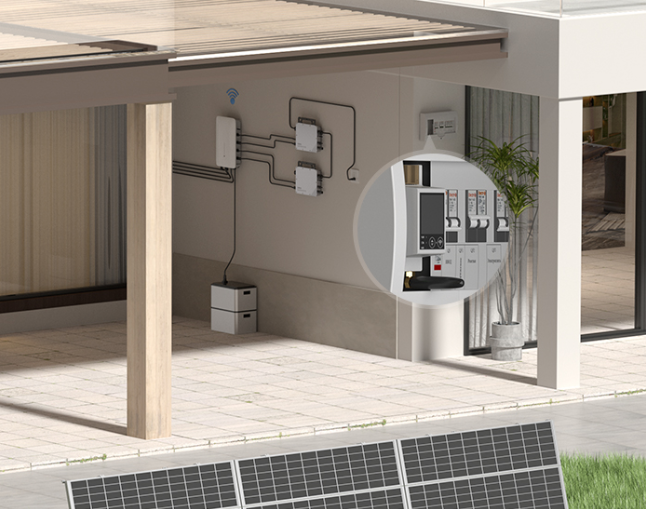Solar Power Meter: Essential for Efficient Solar Energy Monitoring
Abstract:
A solar power meter is an essential tool for optimizing solar energy systems, providing insights into energy production and consumption. This blog explores the importance of a solar power meter, how it helps monitor solar panels, and its role in solar net metering. By understanding the capabilities of solar meters and energy meters, users can enhance their system’s performance and maximize savings. This guide will also touch upon the different types of solar meters and how they help optimize energy efficiency.
Solar Power Meter: Essential for Efficient Solar Energy Monitoring
In the world of renewable energy, solar power continues to grow as a leading alternative energy source. As the demand for solar energy systems rises, the need for tools to efficiently monitor and manage solar energy production becomes crucial. This is where the solar power meter comes into play. By tracking key metrics such as energy production and consumption, a solar power meter can help homeowners and businesses ensure that their solar systems are running at peak efficiency.
In this blog post, we will explore the importance of a solar power meter, its function, and how it integrates with solar panel systems. Additionally, we will delve into solar metering, solar energy meters, and solar power net metering to help you make the most of your solar energy investment.
What is a Solar Power Meter?
A solar power meter is a device used to measure the performance of solar energy systems. It monitors the amount of electricity generated by solar panels and can also track energy consumption within a home or business. The data provided by the solar power meter can be used to assess the efficiency of your solar system, monitor energy savings, and identify potential issues that might require attention.

Main Functions of a Solar Power Meter:
1. Energy Production Measurement: Tracks how much electricity is being generated by your solar panels.
2. Energy Consumption Tracking: Measures how much electricity is being used in your home or business.
3. System Efficiency Monitoring: Provides data on how efficiently the solar system is performing.
4. Real-Time Data: Some meters offer real-time data, allowing users to monitor their solar system’s performance remotely.

The Role of Solar Power Net Metering
One of the most significant benefits of installing a solar power meter is its ability to facilitate solar power net metering. Net metering is a billing mechanism that allows solar energy system owners to receive credits for excess energy produced by their solar panels and sent back to the electrical grid.
In areas where net metering is available, a solar power meter helps track both the electricity consumed from the grid and the surplus energy returned. This is particularly useful for individuals or businesses with larger solar systems that generate more electricity than needed. The meter ensures that every kilowatt-hour sent to the grid is accounted for, allowing users to offset their electricity bills.
How Do Solar Meters Work?
There are various types of solar meters available on the market, each offering different features depending on the user's needs. These include:
· Basic Solar Power Meter: Primarily tracks the energy generated by the solar panels.
· Dual-Purpose Meter (Production and Consumption): Monitors both the energy generated and consumed by the system.
· Smart Solar Meters: Provides real-time data via a mobile app or web dashboard. These meters are ideal for users who want to have detailed information at their fingertips.
·
Solar Meter Types and Their Uses
Below is a table summarizing the key types of solar meters and their features:
|
Type of Meter |
Function |
Best For |
|
Solar Power Meter |
Measures energy production from solar panels. |
Residential and small business use. |
|
Solar Energy Meter |
Tracks both energy production and consumption. |
Ideal for residential users with battery storage. |
|
Solar Panel Meter |
Provides detailed performance data for individual panels. |
Large-scale solar installations. |
|
Net Metering Meter |
Tracks surplus energy sent to the grid. |
Solar system owners using net metering. |
|
Smart Solar Meter |
Real-time data with remote monitoring capabilities. |
Businesses and homes requiring frequent performance checks. |
Why Install a Solar Power Meter?
The installation of a solar power meter offers several benefits to those who have invested in solar energy systems. Some of the primary advantages include:
1. Maximized Energy Efficiency
By closely monitoring your system’s performance, you can identify underperforming panels, faulty equipment, or areas of the system that could be optimized. This ensures that your solar panels are functioning at their highest potential.
2. Cost Savings
A solar power meter helps you understand how much energy you're producing and consuming, allowing you to make adjustments to reduce energy waste. It also helps you keep track of energy credits from net metering, ensuring you’re maximizing your savings.
3. Preventative Maintenance
Solar meters allow for early detection of problems. By having data on your system’s performance, you can spot issues before they lead to bigger, more costly repairs.

4. Environmental Impact
By ensuring your system is working efficiently, you’ll contribute to reducing carbon emissions. The more energy you produce from your solar panels, the less reliance you’ll have on fossil fuel-based electricity.
Choosing the Right Solar Power Meter
When selecting a solar power meter, it's important to consider your specific needs and the type of solar system you have. Some factors to keep in mind include:
· System Size: Larger systems may require advanced meters that can track both production and consumption.
· Real-Time Data Needs: If you want constant access to performance metrics, opt for a smart meter that provides real-time monitoring.
· Net Metering Availability: Ensure your meter supports solar power net metering if you plan to send surplus energy back to the grid.
· Integration with Other Devices: Some meters can integrate with smart home systems or energy management tools, providing more comprehensive insights into your energy usage.
Solar Power Meter and the Future of Solar Energy
As the solar energy industry continues to evolve, so too will the technology behind solar meters. Future advancements may include even more accurate measurement tools, better integration with energy storage solutions, and increased remote monitoring capabilities. These developments will continue to help users make more informed decisions about their energy consumption, ultimately leading to more efficient solar systems and greater cost savings.
Conclusion
A solar power meter is a valuable tool for anyone looking to maximize their solar energy system’s performance. By monitoring energy production, consumption, and net metering, these meters provide essential data to help you optimize your system. Whether you are a homeowner or a business, using the right solar meter can lead to significant savings, better system performance, and a more sustainable energy future.
If you want to know more, please click the follows:
① Easy Solar Setup: Your Guide to Plug-and-Play Solar Installation


